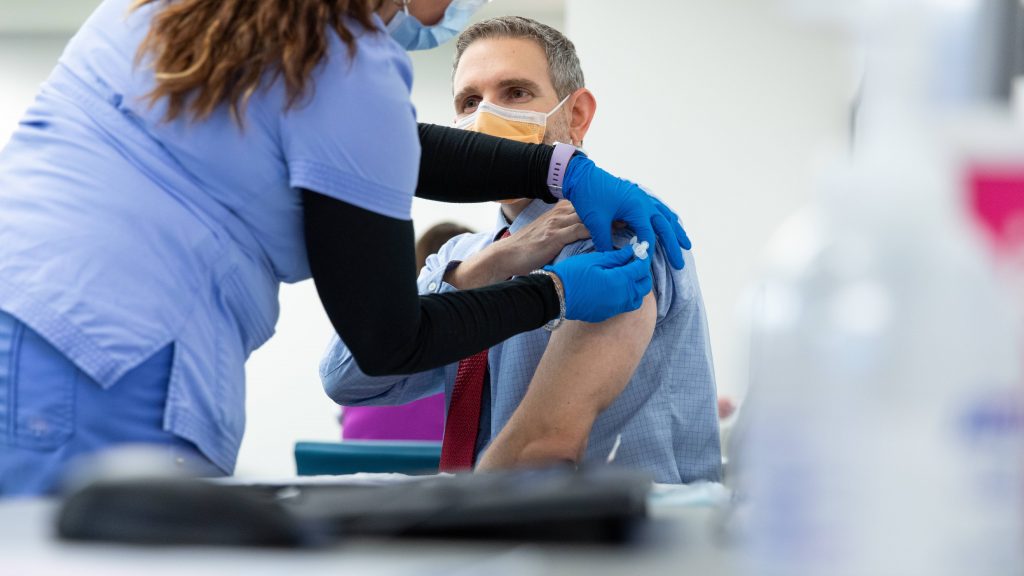
ROCHESTER, Minn. — Ten days after receiving a first dose of a messenger RNA, or mRNA, vaccine for COVID-19, patients without COVID-19 symptoms are far less likely to test positive and unknowingly spread COVID-19, compared to patients who have not been vaccinated for COVID-19. The Pfizer-BioNTech and Moderna messenger RNA vaccines for COVID-19 are authorized for emergency use in the U.S.
With two doses of a messenger RNA COVID-19 vaccine, people with no symptoms showed an 80% lower adjusted risk of testing positive for COVID-19 after their last dose. Those are the findings of a Mayo Clinic study of vaccinated patients. These findings appear in the journal Clinical Infectious Diseases.
The authors say these findings underscore the efficacy of messenger RNA vaccines for COVID-19 to significantly limit the spread of COVID-19 by people with no symptoms who may unknowingly spread the infection to others.
The researchers retrospectively looked at a cohort of 39,000 patients who underwent pre-procedural molecular screening tests for COVID-19. More than 48,000 screening tests were performed, including 3,000 screening tests on patients who had received at least one dose of a messenger RNA COVID-19 vaccine. These screening tests were part of routine COVID-19 testing prior to treatments not related to COVID-19, such as surgeries and other procedures. Patients in the vaccinated group had received at least one dose of a messenger RNA COVID-19 vaccine.
"We found that those patients without symptoms receiving at least one dose of the first authorized mRNA COVID-19 vaccine, Pfizer-BioNTech, 10 days or more prior to screening were 72% less likely to test positive," says Aaron Tande, M.D., a Mayo Clinic infectious diseases specialist and co-first author of the paper. "Those receiving two doses were 73% less likely, compared to the unvaccinated group."
After adjusting for a range of factors, researchers found an 80% risk reduction of testing positive for COVID-19 among those with two doses of a messenger RNA COVID-19 vaccine.
The study was based on patients receiving screening tests between Dec. 17, 2020, and Feb. 8 at Mayo Clinic in Minnesota and Arizona and at Mayo Clinic Health System in Minnesota and Wisconsin.
Additional authors are Benjamin Pollock, Ph.D., co-first author; Nilay Shah, Ph.D.; Gianrico Farrugia, M.D.; Abinash Virk, M.D.; Melanie Swift, M.D.; Laura Breeher, M.D.; Matthew Binnicker, Ph.D.; and Elie Berbari, M.D. ― all of Mayo Clinic. Funding for the study was provided by Mayo Clinic.
###
About Mayo Clinic
Mayo Clinic is a nonprofit organization committed to innovation in clinical practice, education and research, and providing compassion, expertise and answers to everyone who needs healing. Visit the Mayo Clinic News Network for additional Mayo Clinic news.
Media contact:
- Bob Nellis, Mayo Clinic Public Affairs, newsbureau@mayo.edu
________________________________________
Information in this post was accurate at the time of its posting. Due to the fluid nature of the COVID-19 pandemic, scientific understanding, along with guidelines and recommendations, may have changed since the original publication date.
Learn more about tracking COVID-19 and COVID-19 trends.








